Germany migrants: Freiburg murder arrest fuels tensions
- Published
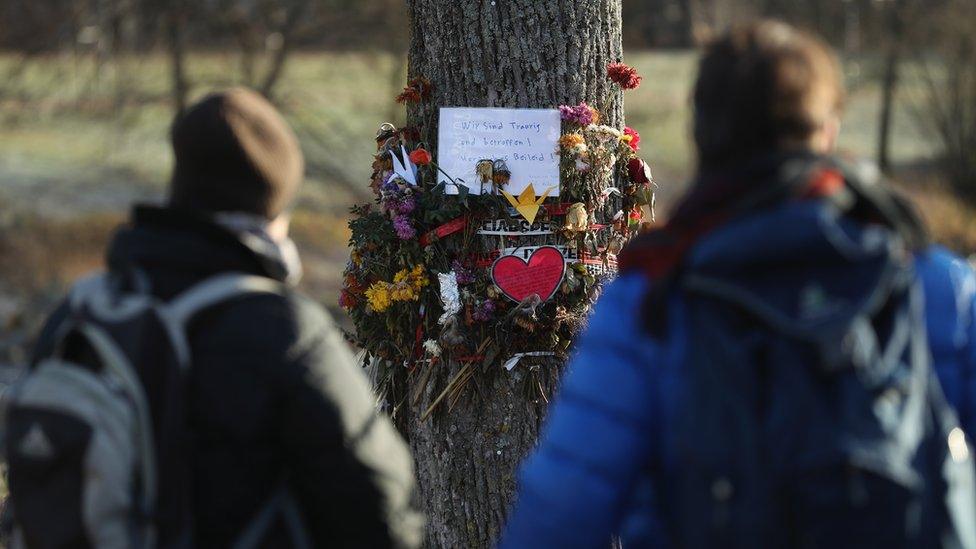
Flowers and messages have been left near the spot where Maria was murdered
For days now photographs of a smiling young woman have haunted newspaper headlines and online news sites.
Maria L was 19 when she was murdered in October.
The circumstances of her death are horrifying enough.
But Germans have been sickened by revelations that a teenage Afghan asylum seeker may have been responsible for the rape and drowning of the young medical student, who volunteered for a charity that helped refugees.
The news has reignited a harrowing national debate over whether Chancellor Angela Merkel's decision to open Germany's doors to hundreds of thousands of refugees has put her citizens in danger.
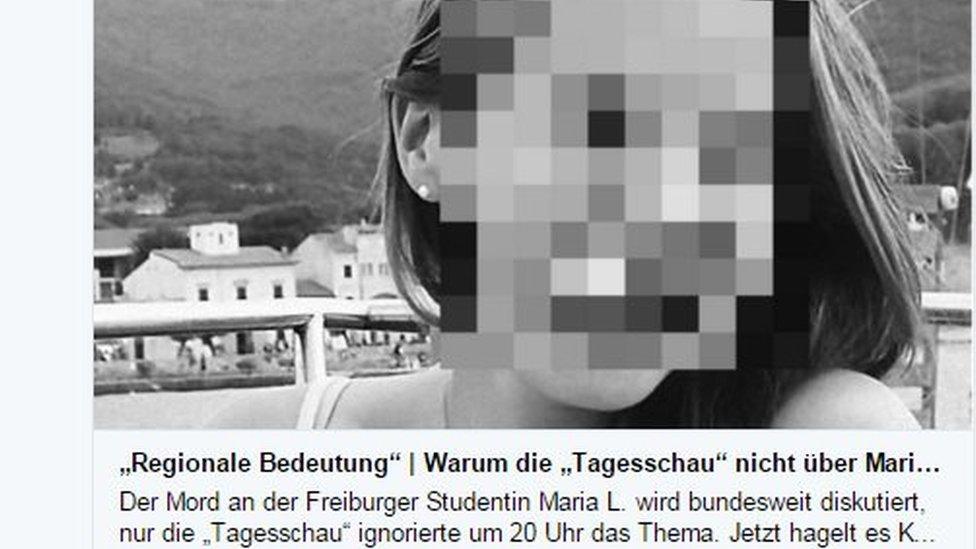
Bild newspaper said that the Freiburg murder had become a topic of national discussion, but had been "ignored" by the main TV news bulletin
Mrs Merkel, MPs of almost every political hue and the head of one of Germany's police unions have all warned against an over-simplified response.
Germans urged not to scapegoat migrants after Freiburg murder
They emphasised the danger implicit in taking one isolated case as evidence that all migrants posed a risk.
But their voices carry only faintly into the fearful, furious clamour of those who believe that the establishment may be covering up a wave of migrant crime and that the press is colluding by turning a blind eye, or even lying about it.
Without waiting for a court to decide whether the 17-year-old accused was guilty or innocent, Rainer Wendt of Germany's DPolG Police Federation controversially told the Bild tabloid newspaper that Maria and many others would not have been victims "had our country been prepared for the dangers that always occur in connection with mass immigration".
Why German authorities feared a backlash
This is an emotionally charged debate, fuelled further this week by the arrest of an Iraqi asylum seeker on suspicion of the rape and attempted rape of two students in the town of Bochum.
And the shadow of the New Year's Eve sex attacks in Cologne looms over it.
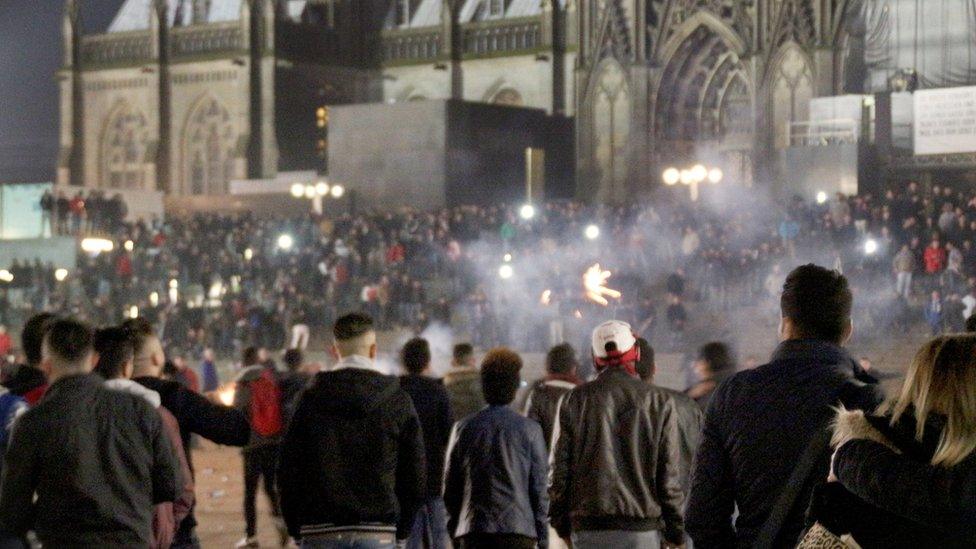
The shadow of the New Year's Eve sex attacks in Cologne looms over the latest death
Initially the police and local government, and then the national press were slow to report the sexual assault of hundreds of women on New Year's Eve at the hands of gangs of men with migrant backgrounds.
Apparently they feared triggering a backlash against the recent influx of hundreds of thousands of refugees.
National broadcaster ARD provoked outrage by initially ignoring the story that the Freiburg suspect was an Afghan asylum seeker.
Its editor in chief later defended , externalthe decision by pointing out that it rarely reported individual criminal cases, concentrating instead on events of national or international significance.
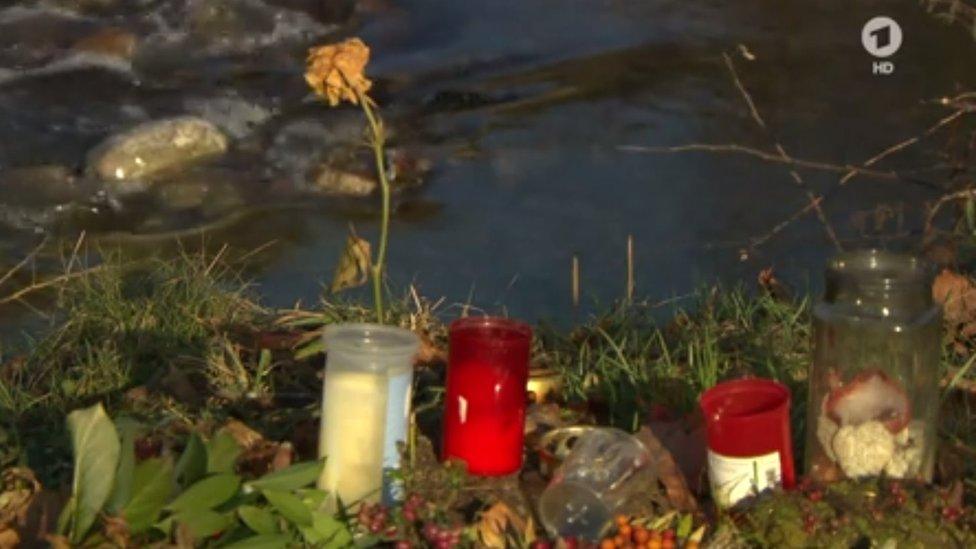
Germany's ARD broadcast its report "A shadow over Freiburg" this week
ARD has now covered the fallout, arguing that the case has become politicised.
But was its original judgement right?
Was the terrible death of a German teenager allegedly at the hands of a young asylum seeker one of a handful of cases or, as one senior policeman believes, evidence of a wider trend?

Crime and immigration in Germany
From 2014-15, the number of asylum seekers rose from some 200,000 to 890,000
In 2014, 122 of the 2,760 murders and manslaughters were committed by people defined as "immigrants" (either seeking asylum or here illegally)
In 2015, out of a total of 2,721 killings, 233 were committed by immigrants
Sexual assault figures reveal a similar trend
In 2014, immigrants were responsible for 949 out of 36,864 assaults, including rape
In 2015, 1,683 out of 36,532 assaults were committed by immigrants
In the first half of 2016, there was a 36% decrease in overall crime committed by immigrants, and there was a fall in the number of arrivals. Most crime involved more minor offences.
Source: German government

Undoubtedly a criminal element entered the country with the influx of migrants entering Europe.
And jihadist group Islamic State (IS) is known to have infiltrated that wave of migration. Two of the first IS-inspired terror attacks on German soil were carried out during the summer by asylum seekers.
But commentators point out these are a tiny proportion of the hundreds of thousands of men, women and children seeking asylum in Germany.
Nevertheless, debate will rage in the months leading up to elections in autumn 2017.
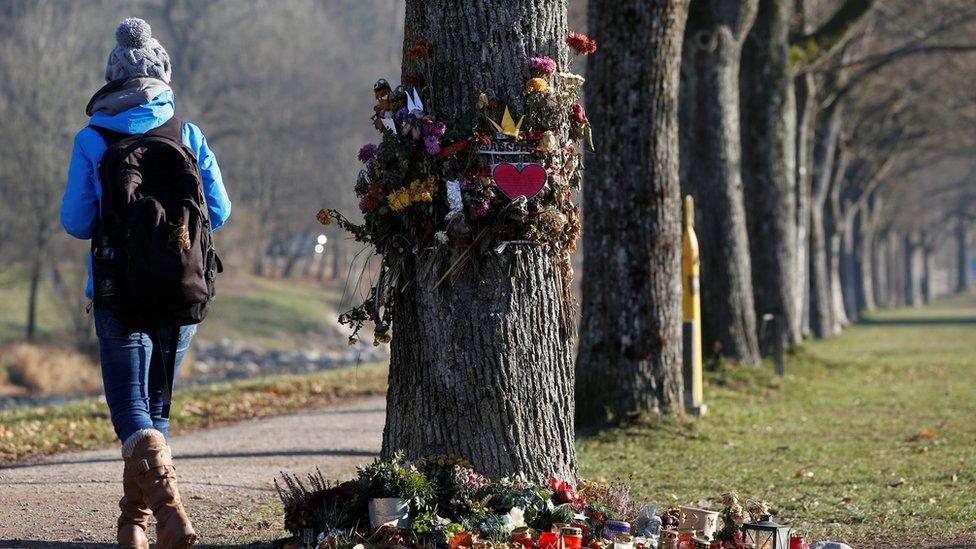
Angela Merkel's conservatives, like all of Germany's established parties, are losing votes to the populist, anti-Islam Alternative for Germany (AfD).
An AfD leader, Joerg Meuthen, said he was shocked by Maria L's murder, and added that he "has to notice how our warnings against the uncontrolled immigration of hundreds of thousands of young men from patriarchal Islamic cultures are being rejected as populist".
Maria L's parents have reportedly asked for donations to a charity which worked with refugees.
In time her story will fade from the headlines.
Perhaps the greatest tragedy of all is that many here will remember her not simply as a bright young woman whose life was cut horribly short but rather as a symbol of the bitter divisions within Germany.
A note on terminology: The BBC uses the term migrant to refer to all people on the move who have yet to complete the legal process of claiming asylum. This group includes people fleeing war-torn countries such as Syria, who are likely to be granted refugee status, as well as people who are seeking jobs and better lives, who governments are likely to rule are economic migrants.
- Published22 November 2016
